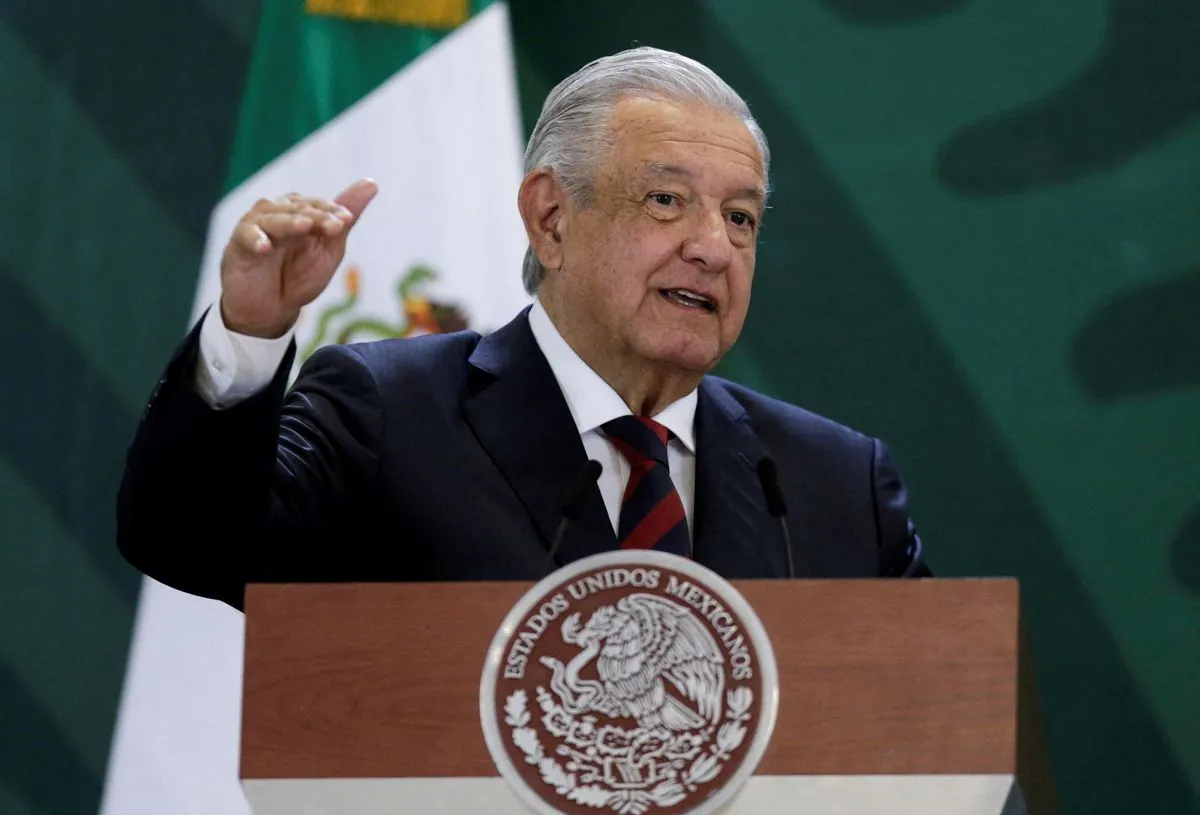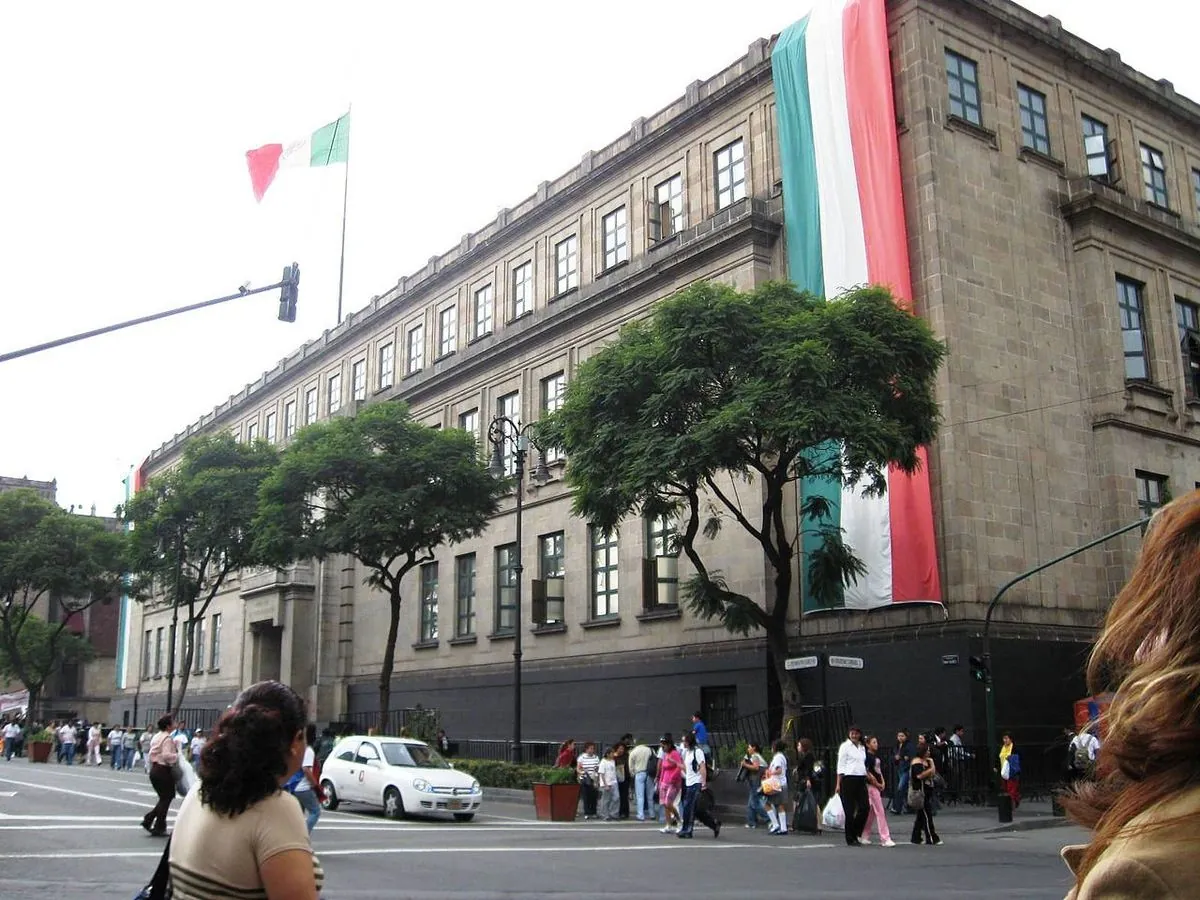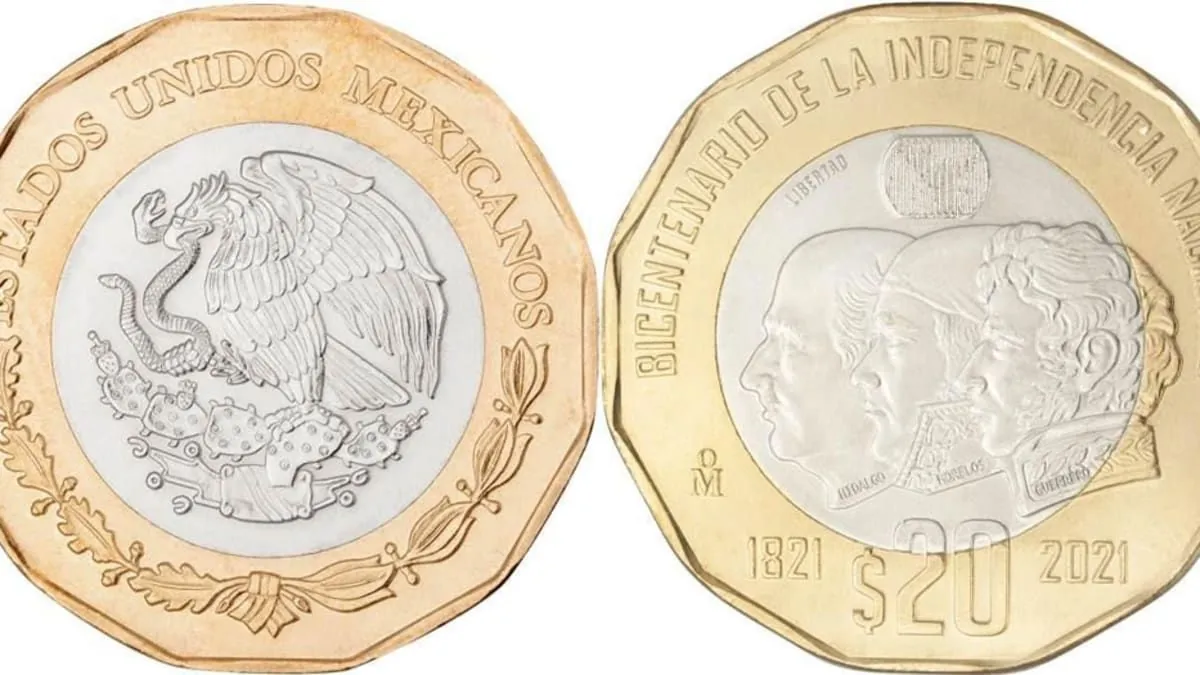Mexico Halts Embassy Ties Over Judicial Reform Criticism
Mexican President announces pause in relations with U.S. and Canadian embassies following criticism of proposed judicial reform. The move impacts diplomatic interactions amid debate over electing judges by popular vote.

Andres Manuel Lopez Obrador, Mexico's president, has announced a temporary suspension of relations with the U.S. and Canadian embassies in Mexico. This decision comes in response to criticism from these nations' ambassadors regarding a proposed judicial reform backed by the Mexican government.
The reform in question aims to introduce a system where judges, including Supreme Court justices, would be elected by popular vote. This proposal represents a significant shift from the current appointment process, where Supreme Court justices are appointed by the President and ratified by the Senate. The initiative has sparked a heated debate about the potential impacts on Mexico's democratic institutions and judicial independence.

On August 26, 2024, a committee in Mexico's lower house of Congress approved the proposal, setting the stage for a potential vote when the newly elected Congress convenes in September. This development has intensified discussions about the future of Mexico's judicial system.
Ken Salazar, the U.S. Ambassador to Mexico, expressed concerns about the reform, describing it as a "major risk to the functioning of Mexico's democracy." He also hinted at potential implications for the U.S.-Mexico trade relationship, which is of significant importance given that the two countries are each other's largest trading partners. Similarly, Graeme Clark, Canada's ambassador to Mexico, raised concerns about potential investment risks associated with the proposed changes.
In response to these criticisms, Lopez Obrador stated during a press conference, "There is a pause." He clarified that this pause applies specifically to relations with the embassies, not with the countries themselves. The president defended Mexico's sovereignty, questioning the appropriateness of foreign ambassadors commenting on domestic policy matters.
"How are we going to allow the ambassador to give his opinion, to say what we're doing is wrong? We aren't going to tell him to get out of the country. But for him to read our Constitution, yes, we will say that."
The exact implications of this "pause" remain unclear, as it appears to be limited to interactions with the embassies in Mexico. As of the time of reporting, neither the U.S. nor the Canadian embassy had responded to requests for comment on the situation.
Proponents of the judicial reform argue that it will enhance democratic participation and address perceived shortcomings in the current system. Critics, however, warn that it could potentially skew the balance of power towards the executive branch, disrupt judicial careers, and make courts more vulnerable to criminal influence.
The announcement of this diplomatic pause has had immediate economic repercussions. The Mexican peso experienced a 1.3% decline in mid-morning trading following the president's comments. This reaction highlights the sensitivity of financial markets to political developments and diplomatic tensions.
The proposed judicial reform would require a constitutional amendment, necessitating a two-thirds majority vote in both houses of Mexico's Congress. The recent June 2024 elections saw Lopez Obrador's favored successor, Claudia Sheinbaum, win the presidency, while their Morena party and allies secured a supermajority in the lower house and nearly achieved the same in the Senate. This political landscape suggests that the reform has a significant chance of passing when it comes to a vote.
As Mexico navigates this complex situation, balancing domestic policy goals with international relations, the outcome of this reform and its impact on Mexico's judiciary and diplomatic ties remain to be seen.



































